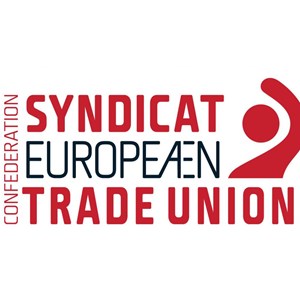NEWS

Small Business Standards (SBS) published its call for experts for the year 2025. This call aims to appoint experts to represent the interests of SMEs in standardization work at the EU and international level in Technical Committees (TCs) of CEN, CENELEC, ETSI, ISO and IEC.

The CEN and CENELEC Annual Report for 2023 is now available, in a fully digital design.

Many of the experts in Working Group 1 of TC 228 have been working on diving standards since the turn of the millennium. At first, work was carried out at the European level, in WG3 of CEN TC 329 ‘Tourism Services’. Immediately after ISO TC 228 ‘Tourism and related services’ was founded in 2007, work continued at the ISO level, and ‘Diving Services’ became the first Working Group (WG1) of ISO TC 228. Practically, all the standards produced by TC 228 WG1 have also become European standards (EN ISO), in accordance with the procedures laid out in the Vienna Agreement.

The planned CEN Workshop Agreement will define guidelines for decision-making on designing a Digital Product Passport (DPP), including its data carrier, information portal contents, and information exchanges and applications, based on the experience of the H2020 project CircThread.

With the European elections approaching, the twin green and digital transitions open new opportunities for the European industry and citizens, in a quickly changing global scenario. But does Europe have what it takes? How can we make sure that it has the skills and the workforce to remain competitive in the global economy? And what is the role of standardization?

The goal of this CEN/WS is the development of a CWA which provides a set of design and installation recommendations for the arrangement and installation of propulsion systems, using hydrogen as fuel, on passenger ships.

CEN and CENELEC, together with the European Commission’s Joint Research Centre (JRC), carry out an annual ‘foresight on standardization’ initiative called Putting Science into Standards (PSIS), with the 2024 Workshop focusing on Molten Salt Reactor Technologies.

The May issue of the CEN-CENELEC newsletter 'On The Spot' is out now!

The 35th ANEC General Assembly meeting held on 11-12 June 2024 in Brussels endorsed the ANEC Annual Review 2023/2024. The report showcases ANEC's key accomplishments in 2023 and the work planned for 2024.

Twice a year, ETUC organizes national workshops in order to increase awareness within the trade union movement about the world of standards, their influence at the workplace, and their development process. On 22 May, together with Spanish trade union USO, ETUC organized a national workshop in Madrid, Spain, which was kindly hosted on the premises of UNE, the Spanish Association for Standardization.